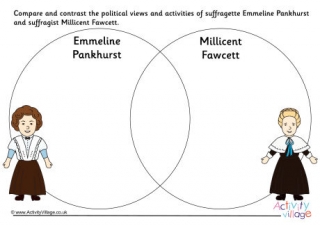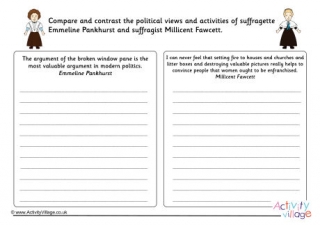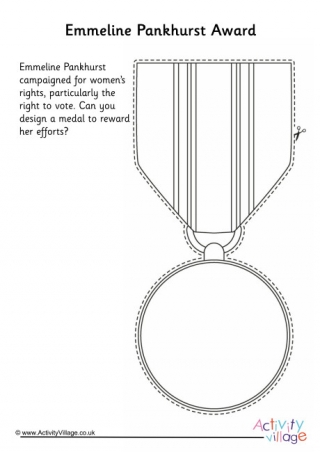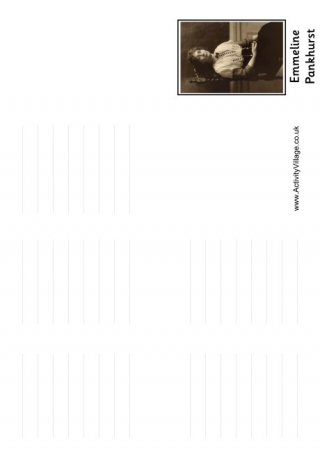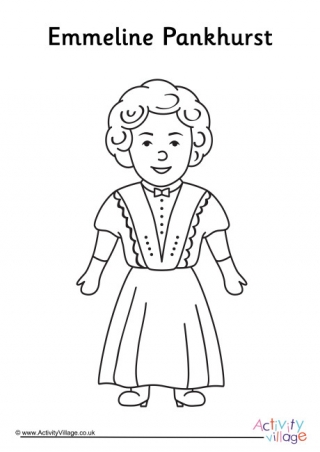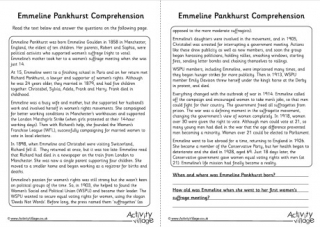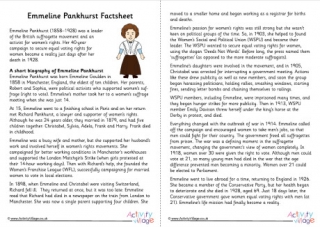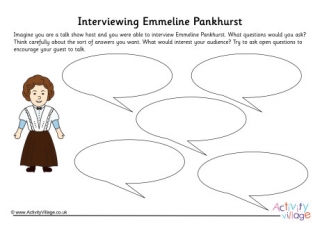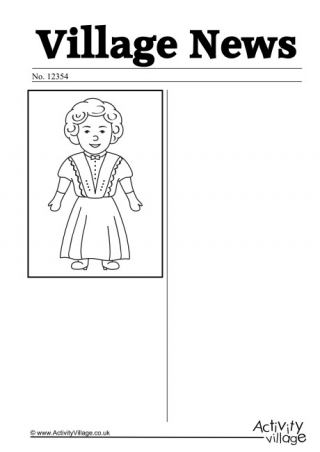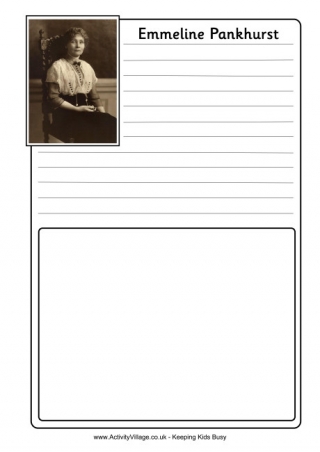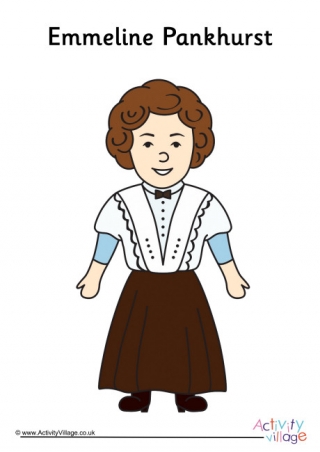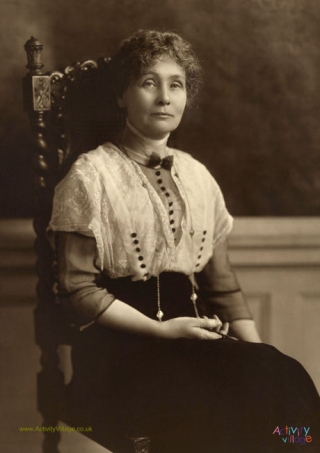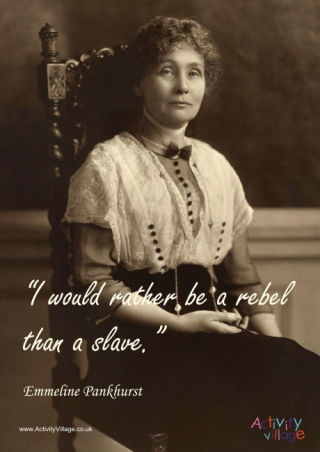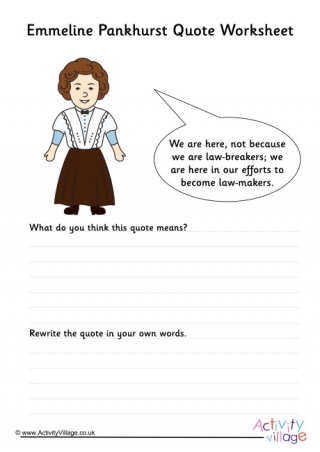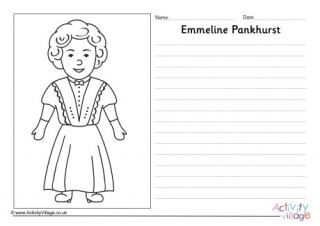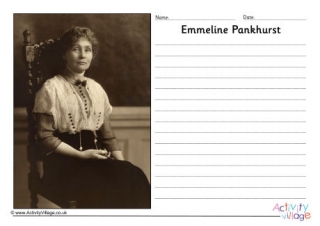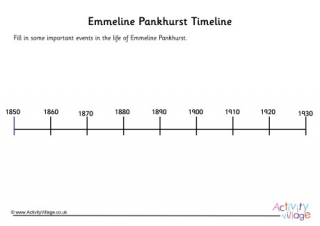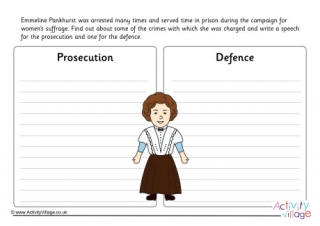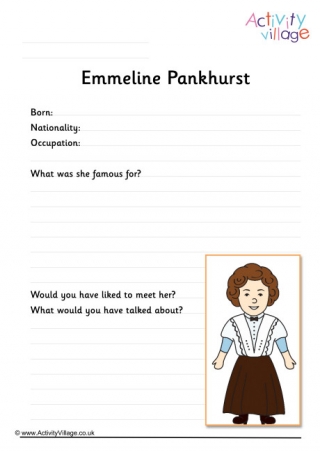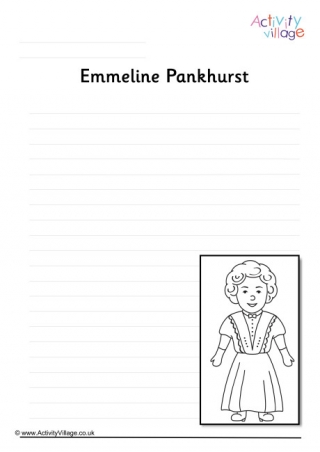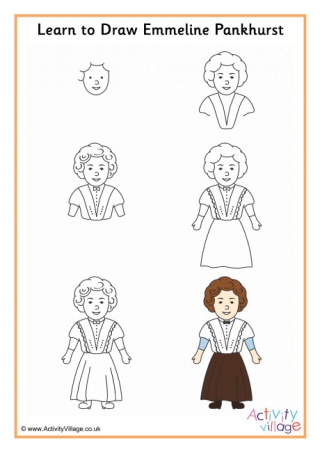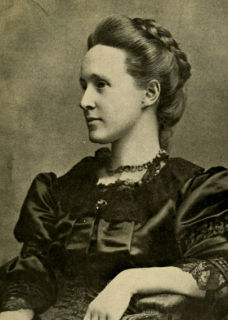Emmeline Pankhurst (1858–1928) was a leader of the British suffragette movement and an activist for women’s rights. Her 40-year campaign to secure equal voting rights for women became a reality just days after her death in 1928. Here you can find out more about this strong-willed and courageous woman who stood up for her beliefs and changed the lives of British women forever. Scroll down to read our short biography and find our collection of learning resources, colouring pages and worksheets.
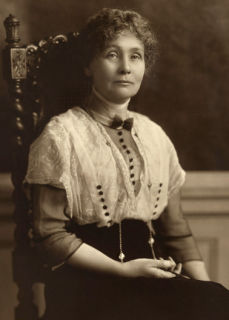
Fun Facts:
Emmeline’s birth certificate says she was born on 15th July 1858, but she always claimed her birthday was 14th July. Perhaps this was to mark Bastille Day in France, which celebrates a key moment in the French Revolution when the people of Paris stormed the Bastille (a fortress prison). Emmeline once said, “I have always thought that the fact that I was born on that day had some kind of influence over my life.”
Emmeline Pankhurt Quotes
“I would rather be a rebel than a slave.”
Emmeline Pankhurst
"We shall fight against the condition of affairs so long as life is in us.”
Emmeline Pankhurst
A Short Biography of Emmeline Pankhurst
Emmeline Pankhurst was born Emmeline Goulden in 1858 in Manchester, England, the eldest of ten children. Her parents, Robert and Sophia, were political activists who supported women’s suffrage (right to vote). Emmeline’s mother took her to a women’s suffrage meeting when she was just 14.
At 15, Emmeline went to a finishing school in Paris and on her return met Richard Pankhurst, a lawyer and supporter of women’s rights. Although he was 24 years older, they married in 1879, and had five children together: Christabel, Sylvia, Adela, Frank and Harry. Frank died in childhood.
Emmeline was a busy wife and mother, but she supported her husband’s work and involved herself in women’s rights movements. She campaigned for better working conditions in Manchester’s workhouses and supported the London Matchgirls Strike (when girls protested at their 14-hour working days). Then with Richard’s help, she founded the Women’s Franchise League (WFL), successfully campaigning for married women to vote in local elections.
In 1898, when Emmeline and Christabel were visiting Switzerland, Richard fell ill. They returned at once, but it was too late: Emmeline read that Richard had died in a newspaper on the train from London to Manchester. She was now a single parent supporting four children. She moved to a smaller home and began working as a registrar for births and deaths.
Emmeline’s passion for women’s rights was still strong but she wasn’t keen on political groups of the time. So, in 1903, she helped to found the Women’s Social and Political Union (WSPU) and became their leader. The WSPU wanted to secure equal voting rights for women, using the slogan ‘Deeds Not Words’. Before long, the press named them ‘suffragettes’ (as opposed to the more moderate suffragists).
Emmeline’s daughters were involved in the movement, and in 1905, Christabel was arrested for interrupting a government meeting. Actions like these drew publicity as well as new members, and soon the group began harassing politicians, holding rallies, smashing windows, starting fires, sending letter bombs and chaining themselves to railings.
WSPU members, including Emmeline, were imprisoned many times, and they began hunger strikes for more publicity. Then in 1913, WSPU member Emily Davison threw herself under the king’s horse at the Derby in protest, and died.
Everything changed with the outbreak of war in 1914. Emmeline called off the campaign and encouraged women to take men’s jobs, so that men could fight for their country. The government freed all suffragettes from prison. The war was a defining moment in the suffragette movement, changing the government’s view of women completely. In 1918, women over 30 were given the right to vote. Although men could vote at 21, so many young men had died in the war that the age difference prevented men becoming a minority. Women over 21 could be elected to Parliament.
Emmeline went to live abroad for a time, returning to England in 1926. She became a member of the Conservative Party, but her health began to deteriorate and she died in 1928, aged 69. Just 18 days later, the Conservative government gave women equal voting rights with men (at 21). Emmeline’s life mission had finally become a reality.
Our Emmeline Pankhurst Resources


